
The Enchanting Fichtel Mountains of Germany
Nestled in the northeastern part of Bavaria, the Fichtel Mountains are a hidden gem waiting to be discovered. With their lush forests, rolling hills, and scenic trails, these mountains offer a serene escape from the hustle and bustle of city life. The region is rich in natural beauty and provides a perfect backdrop for hiking, biking, and other outdoor activities. The Fichtel Mountains are also steeped in history and culture. Visitors can explore charming villages with traditional Bavarian architecture, visit historic castles, and learn about the region's mining heritage. The local cuisine is another highlight, with many restaurants serving hearty Bavarian dishes that will delight your taste buds. In winter, the Fichtel Mountains transform into a snowy wonderland, ideal for skiing, snowboarding, and other winter sports. Whether you're looking for adventure, relaxation, or a bit of both, the Fichtel Mountains have something for everyone.
Local tips in Fichtel Mountains
- Visit during late spring or early autumn for the best weather and fewer crowds.
- Try the local specialty, 'Schäufele' – a delicious roasted pork shoulder.
- Bring comfortable hiking shoes, as many of the best sights are accessible only by foot.
- Check out the local markets for unique souvenirs and handcrafted goods.
- If visiting in winter, make sure to book your accommodation in advance as it is a popular ski destination.
The Enchanting Fichtel Mountains of Germany
Nestled in the northeastern part of Bavaria, the Fichtel Mountains are a hidden gem waiting to be discovered. With their lush forests, rolling hills, and scenic trails, these mountains offer a serene escape from the hustle and bustle of city life. The region is rich in natural beauty and provides a perfect backdrop for hiking, biking, and other outdoor activities. The Fichtel Mountains are also steeped in history and culture. Visitors can explore charming villages with traditional Bavarian architecture, visit historic castles, and learn about the region's mining heritage. The local cuisine is another highlight, with many restaurants serving hearty Bavarian dishes that will delight your taste buds. In winter, the Fichtel Mountains transform into a snowy wonderland, ideal for skiing, snowboarding, and other winter sports. Whether you're looking for adventure, relaxation, or a bit of both, the Fichtel Mountains have something for everyone.
When is the best time to go to Fichtel Mountains?
Iconic landmarks you can’t miss
Luisenburg Felsenlabyrinth
Explore Europe's largest rock labyrinth in Wunsiedel, Germany: a mesmerizing landscape of granite formations shaped over millions of years, offering adventure and natural beauty.
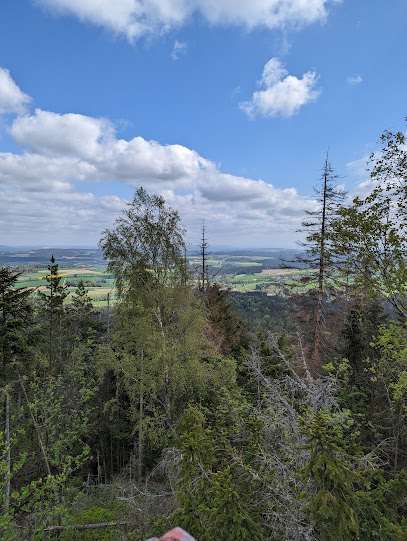
Falknerei Greifvogel Park
Discover the majestic world of eagles, falcons, and owls at Falknerei Greifvogel Park in Wunsiedel, where thrilling flight shows and conservation meet in the heart of Bavaria's Fichtelgebirge.
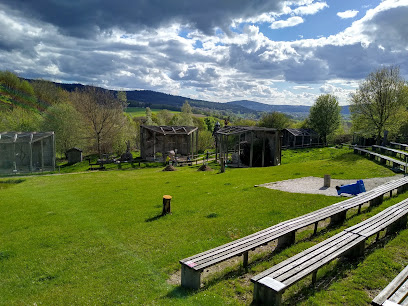
Naturwaldreservat Fichtelseemoor
Explore the ancient Fichtelseemoor Natural Forest Reserve in Bavaria, a unique high moor landscape with rare bog pine forests and diverse wildlife, perfect for nature enthusiasts.
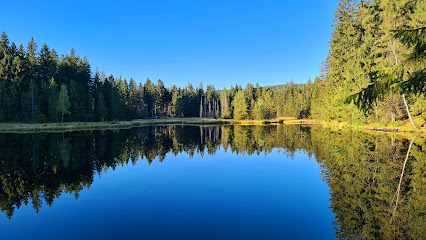
Fichtelgebirge Museum
Explore the Fichtelgebirge's rich history and culture at this regional museum in Wunsiedel, featuring exhibits from geology to folk art and active craft workshops.
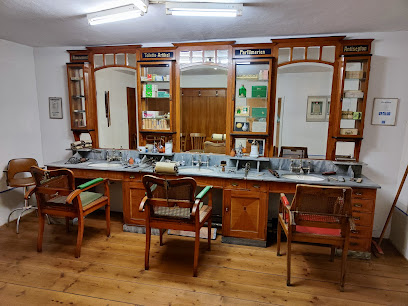
Kaiserfelsen
Explore the majestic Kaiserfelsen within the Luisenburg Rock Labyrinth, a natural wonder offering stunning views and a journey through geological history in the heart of Bavaria.
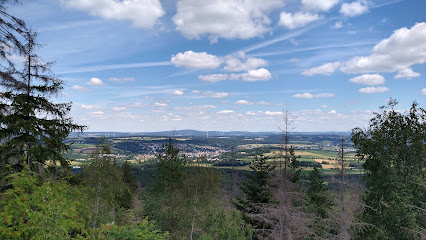
Bundeskreuz
Ascend to the Bundeskreuz in Wunsiedel's Luisenburg Rock Labyrinth for breathtaking panoramic views and a glimpse into the region's rich history and stunning natural beauty.
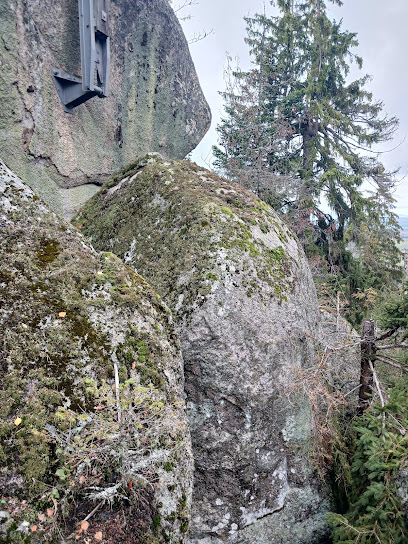
Unmissable attractions to see
Luisenburg Felsenlabyrinth
Discover the magical Luisenburg Felsenlabyrinth in Wunsiedel, Germany, where nature's artistry and adventure await amidst stunning rock formations.
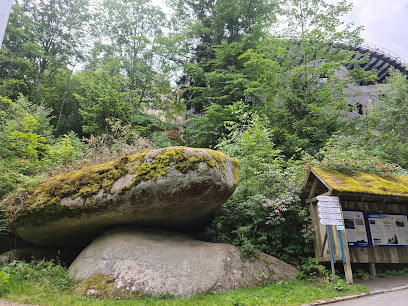
German Car Museum Fichtelberg
Discover the rich history of automotive engineering at the German Car Museum Fichtelberg, showcasing an impressive collection of cars, motorcycles, and more.
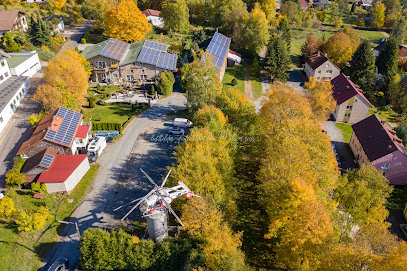
Falknerei Greifvogel Park
Experience the thrill of majestic birds of prey at Falknerei Greifvogel Park, a unique attraction in the heart of Wunsiedel, Germany.
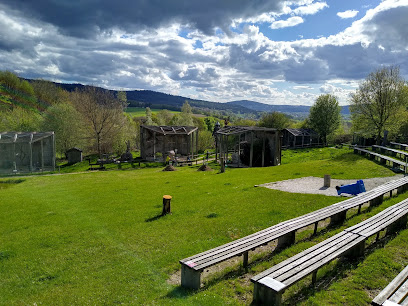
Granitlabyrinth
Explore the breathtaking Granitlabyrinth in Kirchenlamitz, a stunning natural attraction featuring intricate granite pathways and serene landscapes.
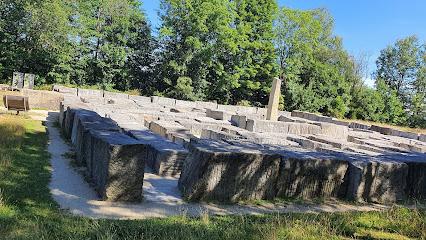
Backöfele
Explore Backöfele, a breathtaking hiking area and observation deck in Fichtelgebirge, perfect for nature lovers and outdoor adventures.
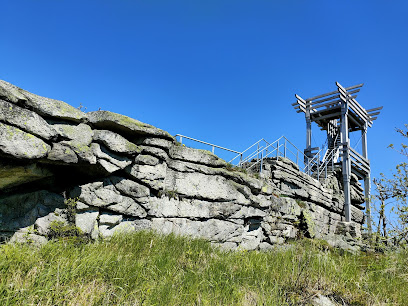
Naturwaldreservat Fichtelseemoor
Explore the unspoiled beauty of Naturwaldreservat Fichtelseemoor, a serene nature preserve in Germany perfect for hiking and wildlife observation.
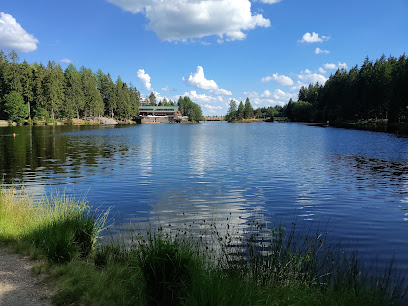
Besucherbergwerk Gleissinger Fels
Experience the rich mining history of Fichtelberg at Besucherbergwerk Gleissinger Fels, where adventure and education meet in the depths of the earth.
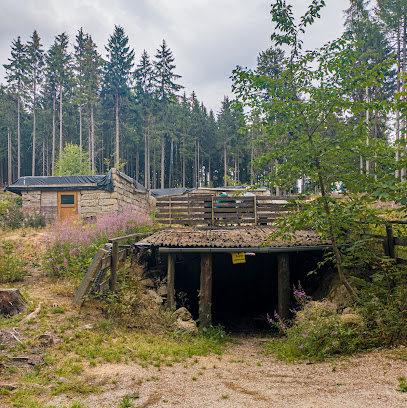
Fichtelgebirge Museum
Explore the Fichtelgebirge Museum in Wunsiedel for an immersive journey into the cultural and natural wonders of the Fichtel Mountains.
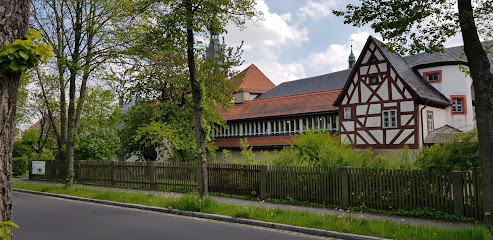
Weißmainfelsen
Explore the stunning natural beauty of Weißenmainfelsen in Neubauer Forst-Nord, a top hiking destination perfect for outdoor enthusiasts seeking adventure.
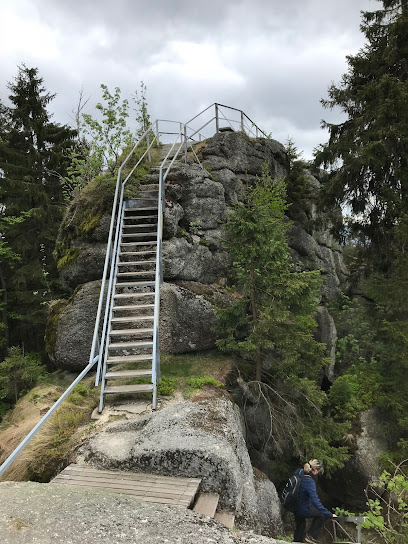
Egerland-Museum
Explore the rich cultural heritage of the Egerland region at the Egerland-Museum in Marktredwitz.
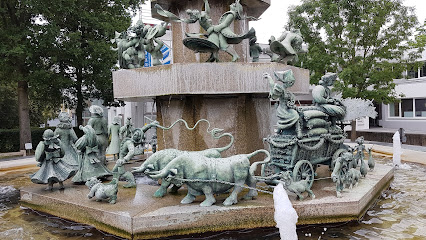
Freilandmuseum Grassemann Naturpark-Infostelle
Explore Freilandmuseum Grassemann Naturpark-Infostelle: A vibrant open-air museum celebrating agricultural heritage and natural beauty in Warmensteinach.
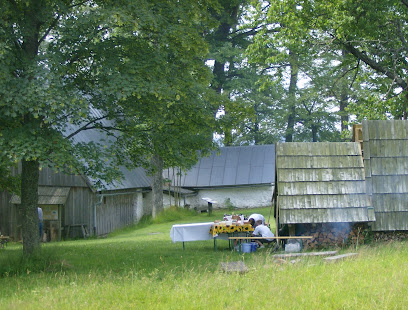
Luisenquelle
Discover the serene beauty and historical significance of Luisenquelle in Bad Alexandersbad, a perfect destination for hiking and exploration.
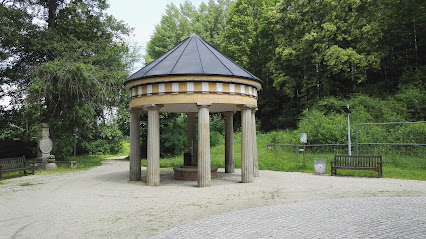
Girgelhöhle
Explore the breathtaking trails of Girgelhöhle, a hidden hiking paradise in Tröstauer Forst-West, perfect for nature lovers and adventurers.
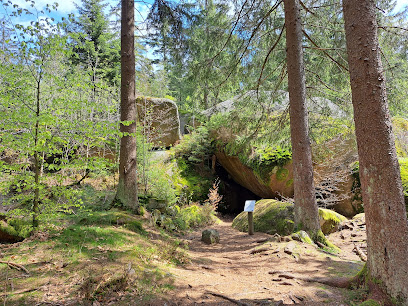
Großer Habersteinfelsen
Discover the breathtaking landscapes and invigorating trails of Großer Habersteinfelsen, a must-visit hiking area in Tröstauer Forst-Ost, Germany.
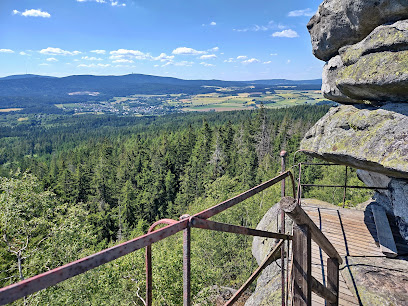
Fichtelgebirge Nature Park - Administration
Discover the peaceful beauty of Fichtelgebirge Nature Park, a natural gem in Bavaria, ideal for hiking, wildlife watching, and enjoying the great outdoors.
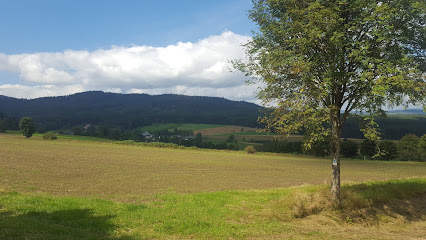
Essential places to dine
Wirtshaus zur Bleaml Alm
Discover traditional German flavors at Wirtshaus zur Bleaml Alm in Fichtelberg – where great food meets stunning mountain views.
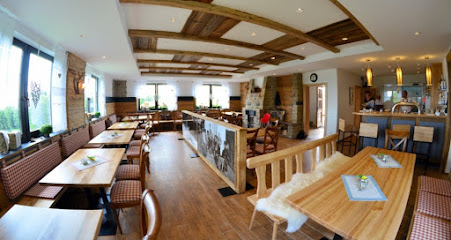
Wirtshaus im Gut
Experience authentic German cuisine at Wirtshaus im Gut in Wunsiedel—where tradition meets flavor in a cozy atmosphere.
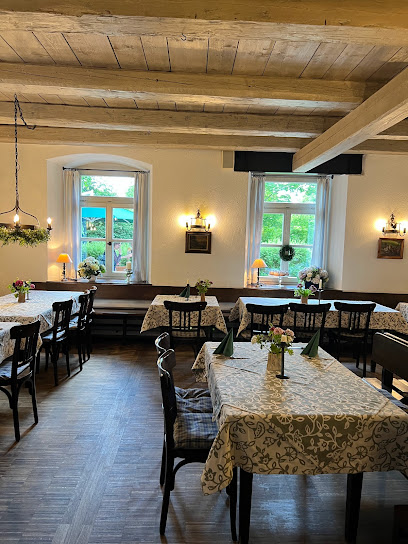
Das Kösseinehaus
Discover Das Kösseinehaus: A hidden gem in Wunsiedel offering delightful German cuisine and cozy guest accommodations amidst breathtaking scenery.
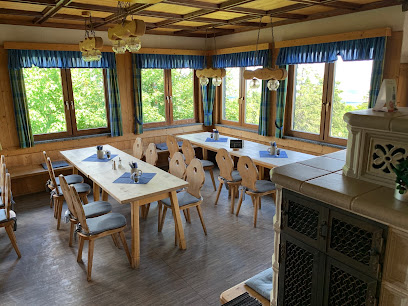
Restaurant MUSEO
Experience the best of Italian and German cuisine at Restaurant MUSEO in Fichtelberg – where every meal is a celebration of flavors.

Pension Schweizerhaus
Discover culinary delights and cozy accommodations at Pension Schweizerhaus in Bad Alexandersbad – your perfect getaway.

Eulenstube Fichtelgebirge
Discover Eulenstube Fichtelgebirge: Where authentic German cuisine meets stunning natural beauty in an inviting beer garden setting.
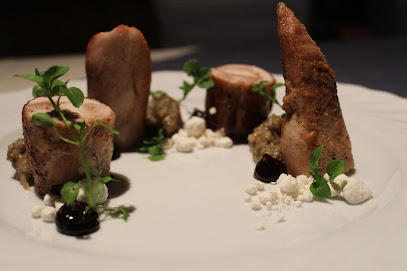
Markets, malls and hidden boutiques
Lidl
Discover Lidl in Wunsiedel – a discount supermarket offering fresh produce, groceries, and organic products for savvy travelers.
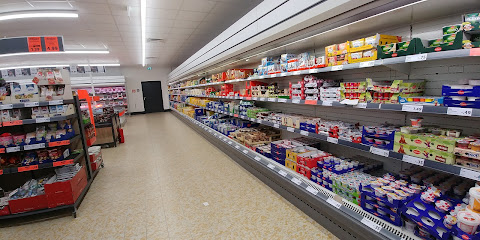
EDEKA Tröstau
Discover the local flavors of Tröstau at EDEKA, where quality meets community in a delightful supermarket experience.
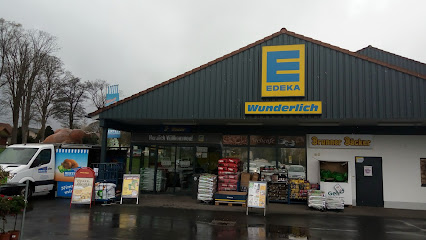
NORMA Filiale
Discover unbeatable prices and a wide range of products at NORMA Filiale, Wunsiedel's favorite discount supermarket for savvy travelers.
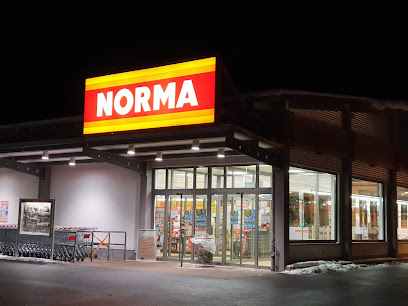
Action Marktredwitz
Explore Action Marktredwitz, your one-stop shop for unique gifts, DIY supplies, and local treasures in the heart of Marktredwitz.
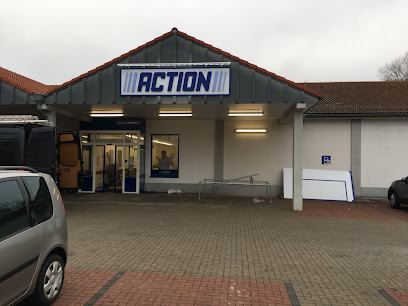
TEDi
Explore TEDi in Wunsiedel for affordable home goods and unique souvenirs, blending quality and charm in every purchase.

AWG Mode Center Wunsiedel
Explore AWG Mode Center Wunsiedel for an extensive collection of men's, women's, and children's fashion, offering styles for every occasion.
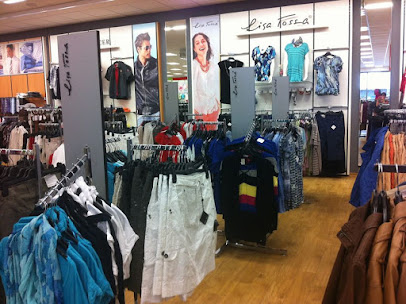
Buchhandlung Kohler GmbH
Explore the enchanting Buchhandlung Kohler GmbH in Wunsiedel, a treasure trove of books and stationery for every traveler and literature lover.
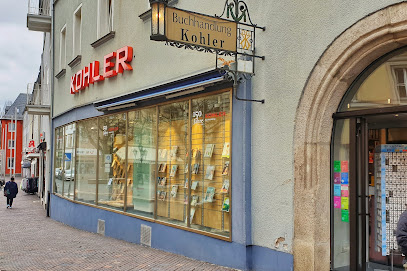
Fabrikverkauf
Discover Fabrikverkauf in Marktredwitz: a treasure trove of unique gifts, local delicacies, and artisan craftsmanship for every visitor.
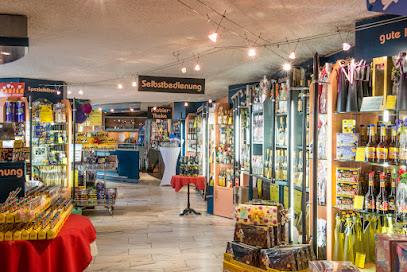
TheLoom.eu
Discover the heart of cycling at TheLoom.eu in Marktredwitz, offering a range of bicycles and sporting goods for every adventure.
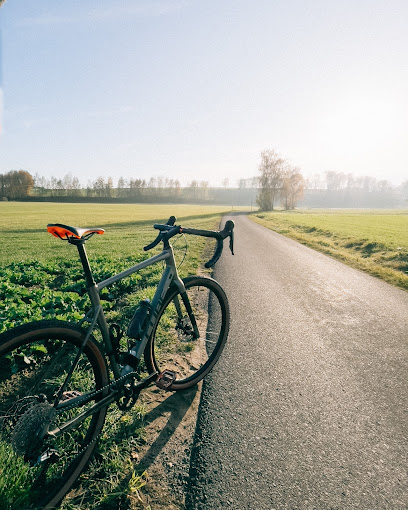
GlücksMoment - Freude zum Verschenken
Explore GlücksMoment in Waldershof for unique gifts, balloons, and event tickets that celebrate every special moment and occasion.
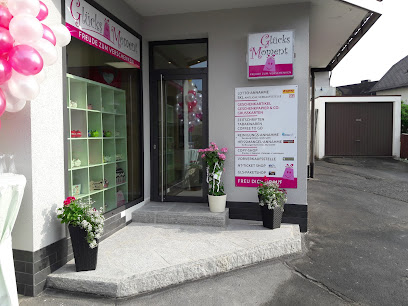
NKD
Explore NKD in Wunsiedel for trendy clothing for the whole family, blending style, comfort, and affordability in a welcoming shopping experience.
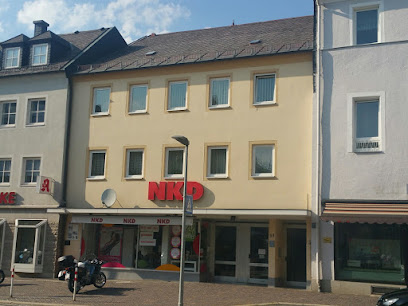
dm-drogerie markt
Explore Wunsiedel's dm-drogerie markt for a delightful shopping experience featuring cosmetics, groceries, and personal care items in a charming setting.
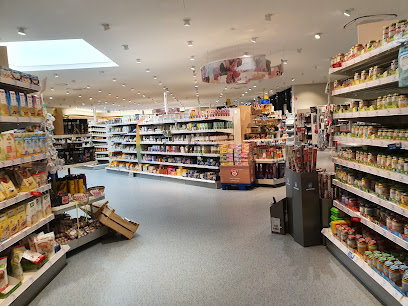
Sports - Experts GmbH
Discover Sports - Experts GmbH in Wunsiedel for top-quality sporting goods and expert advice, perfect for every athlete and outdoor enthusiast.

Blumen Moczigemba
Discover the enchanting world of Blumen Moczigemba in Wunsiedel, where exquisite flowers and thoughtful gift baskets await every visitor.
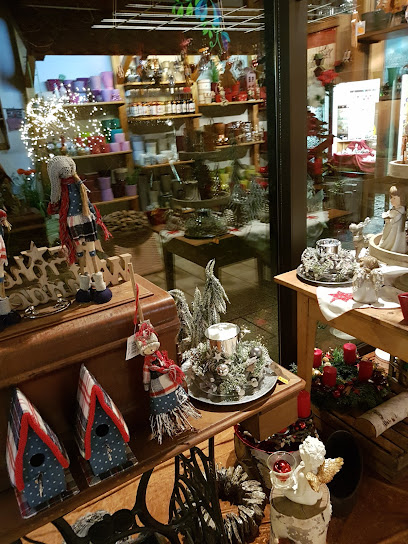
Der besondere Kinderladen
Explore Der besondere Kinderladen in Wunsiedel for unique toys and educational materials that inspire creativity and joy in children of all ages.
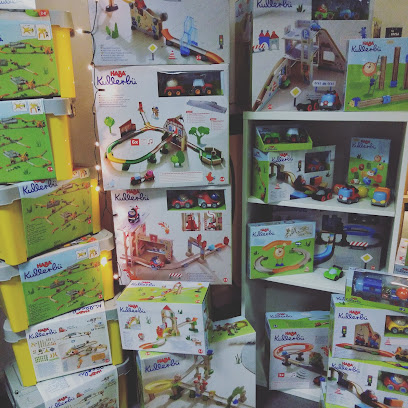
Essential bars & hidden hideouts
Meister Bär Hotel Fichtelgebirge
Discover the serene charm of Meister Bär Hotel Fichtelgebirge, where comfort meets European cuisine in a stunning natural setting.
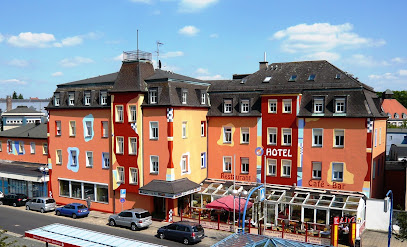
Zum Forsthaus
Experience Bavarian hospitality at Zum Forsthaus, a charming beer garden in Marktredwitz offering authentic German cuisine and local brews.
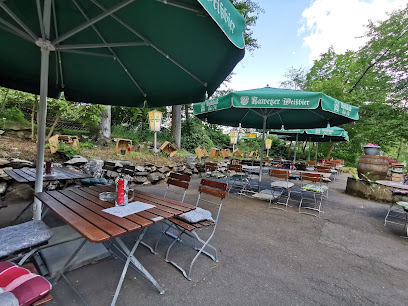
Zboro`s Bistro
Experience the local gastronomy at Zboro's Bistro, Wunsiedel's charming gastropub, where delicious meals and a cozy atmosphere await you.
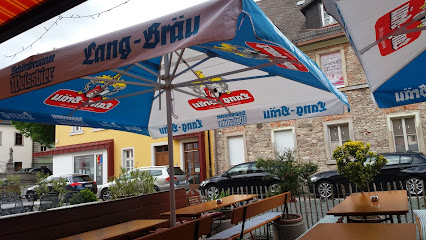
Luisenburg Resort
Experience the stunning natural beauty and vibrant dining scene at Luisenburg Resort, a gem in Wunsiedel, Germany.
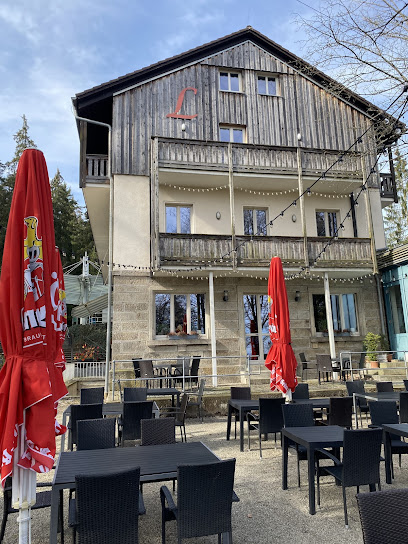
Schaffnerlos Musikbahnhof Bar
Experience the vibrant nightlife of Waldershof at Schaffnerlos Musikbahnhof Bar, where live music and friendly vibes create unforgettable moments.
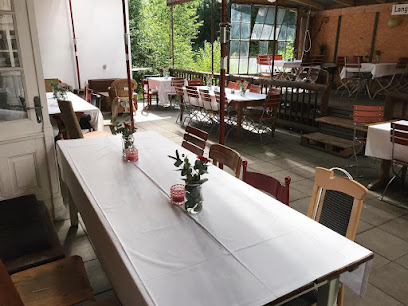
Phönix Shisha Bar & Lounge
Discover the enchanting Phönix Shisha Bar & Lounge in Marktredwitz for a unique blend of relaxation, socializing, and delightful shisha experiences.
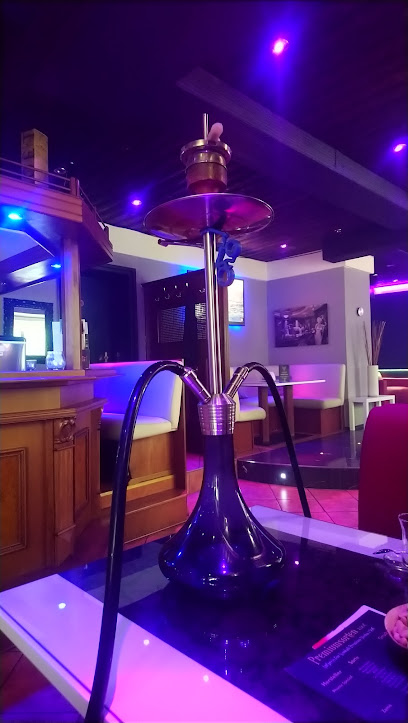
Purzelbaum
Experience the vibrant atmosphere of Purzelbaum, a premier bar in Marktredwitz, offering diverse drinks and a welcoming ambiance for all.
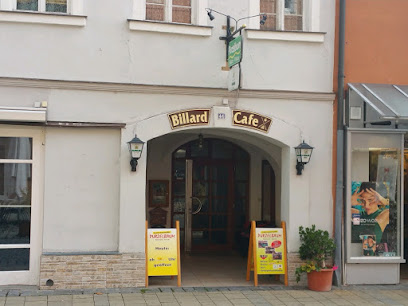
Zoiglmoos
Discover the heart of Bavarian culture at Zoiglmoos, a lively beer garden in Wunsiedel serving authentic local brews and delicious cuisine.
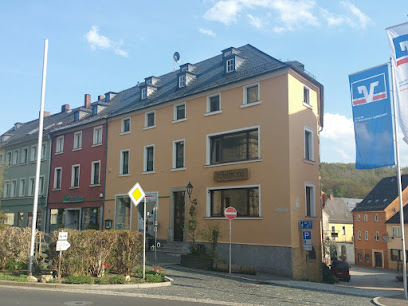
Endstation die kleine Kneipe Bikertreff
Experience the biker culture at Endstation Die Kleine Kneipe, a cozy pub in Fichtelberg offering local brews and hearty meals in a welcoming atmosphere.
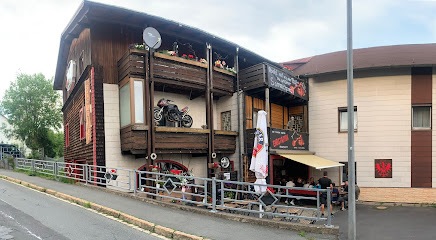
Huza-Stüberl
Discover the authentic taste of Bavaria at Huza-Stüberl, a charming beer garden and Bavarian restaurant in Neusorg.
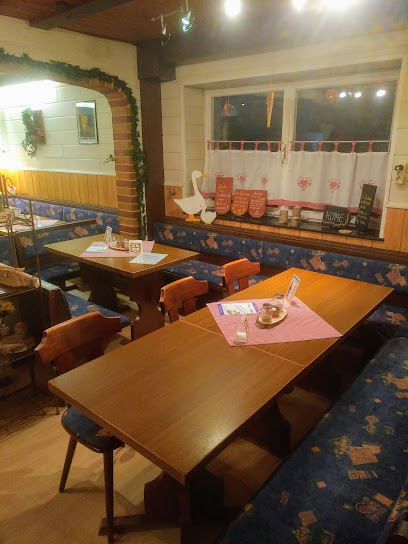
Buntmacher's Bar
Discover the charm of Buntmacher's Bar in Wunsiedel, where refreshing beers, live music, and a vibrant beer garden await you.
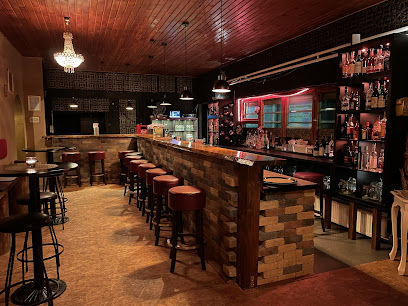
Thorn-Bar & Café
Discover Thorn-Bar & Café in Marktredwitz, where exceptional drinks meet a warm, inviting atmosphere for an unforgettable experience.
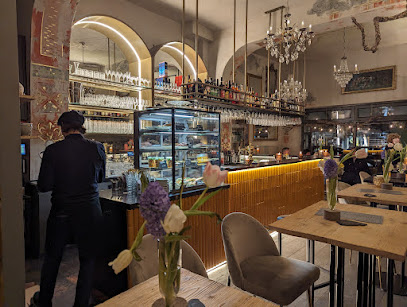
615 - Bar & Lounge
Discover the lively ambiance of 615 - Bar & Lounge in Marktredwitz, where cocktails and camaraderie come together for an unforgettable night out.
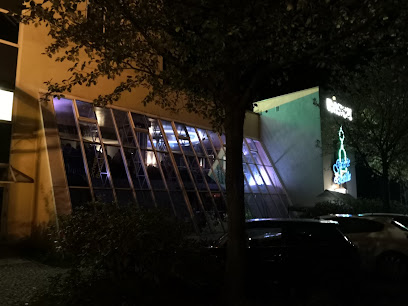
Kaminflackerei - Die Panorama-Lounge im Siebenquell
Experience the enchanting ambiance of Kaminflackerei, a cozy bar in Weißenstadt offering delightful drinks and soothing piano melodies.
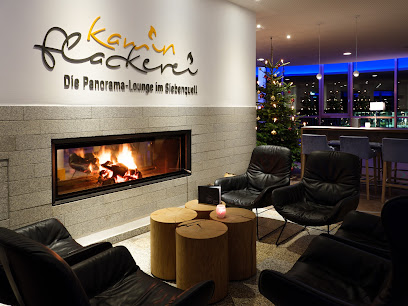
Local Phrases about Fichtel Mountains
-
- HelloHallo
[hah-loh] - GoodbyeAuf Wiedersehen
[owf vee-der-zay-en] - YesJa
[yah] - NoNein
[nine] - Please/You're welcomeBitte
[bih-tuh] - Thank youDanke
[dahn-kuh] - Excuse me/SorryEntschuldigung
[ent-shool-dee-goong] - How are you?Wie geht es dir?
[vee gayt es deer] - Fine. And you?Gut. Und dir?
[goot oont deer] - Do you speak English?Sprechen Sie Englisch?
[shpre-khen zee eng-lish] - I don't understandIch verstehe nicht
[ikh fer-shtay-uh nikht]
- HelloHallo
-
- I'd like to see the menu, pleaseIch hätte gerne die Speisekarte, bitte
[ikh het-uh gair-nuh dee shpy-zuh-kahr-tuh, bih-tuh] - I don't eat meatIch esse kein Fleisch
[ikh ess-uh kine flysh] - Cheers!Prost!
[prohst] - I would like to pay, pleaseIch möchte bitte zahlen
[ikh mohkhte bih-tuh tsah-len]
- I'd like to see the menu, pleaseIch hätte gerne die Speisekarte, bitte
-
- Help!Hilfe!
[hil-fuh] - Go away!Geh weg!
[gay vekh] - Call the Police!Rufen Sie die Polizei!
[roo-fen zee dee poh-lee-tsay] - Call a doctor!Rufen Sie einen Arzt!
[roo-fen zee i-nen artsht] - I'm lostIch habe mich verirrt
[ikh hah-buh meesh feh-rirt] - I'm illIch bin krank
[ikh been krahngk]
- Help!Hilfe!
-
- I'd like to buy...Ich möchte kaufen...
[ikh mohkhte kow-fen] - I'm just lookingIch schaue nur
[ikh shou-uh noor] - How much is it?Wie viel kostet es?
[vee feel kost-et es] - That's too expensiveDas ist zu teuer
[dahs ist tsoy toy-er] - Can you lower the price?Können Sie den Preis senken?
[kew-nen zee den prees zeng-ken]
- I'd like to buy...Ich möchte kaufen...
-
- What time is it?Wie spät ist es?
[vee shpayt ist es] - It's one o'clockEs ist ein Uhr
[es ist iyn oor] - Half past (10)Halb zehn
[halb tsayn] - MorningMorgen
[mohr-gen] - AfternoonNachmittag
[nahk-mit-tahk] - EveningAbend
[ah-bent] - YesterdayGestern
[geh-stern] - TodayHeute
[hoy-tuh] - TomorrowMorgen
[mohr-gen] - 1eins
[ayns] - 2zwei
[tsvay] - 3drei
[dry] - 4vier
[feer] - 5fünf
[foonf] - 6sechs
[zeks] - 7sieben
[zee-ben] - 8acht
[ahkt] - 9neun
[noyn] - 10zehn
[tsayn]
- What time is it?Wie spät ist es?
-
- Where's a/the...?Wo ist ein/der...?
[voh ist iyn/dehr] - What's the address?Was ist die Adresse?
[vahs ist dee ah-dreh-suh] - Can you show me (on the map)?Können Sie es mir zeigen (auf der Karte)?
[kew-nen zee es meer tsie-gen (owf dehr kahr-tuh)] - When's the next (bus)?Wann kommt der nächste (Bus)?
[vahn komt dehr nehk-stuh (boos)] - A ticket (to ....)Eine Fahrkarte (nach ....)
[iyn-uh fahr-kahr-tuh (nahkh)]
- Where's a/the...?Wo ist ein/der...?
History of Fichtel Mountains
-
The Fichtel Mountains, or Fichtelgebirge, have been inhabited since prehistoric times. Archaeological finds suggest that early human settlements existed here as far back as the Stone Age. Evidence of Celtic tribes from around 500 BC has also been discovered, indicating the region's long history of human habitation.
-
During the Middle Ages, the Fichtel Mountains became a hub for mining activities. Rich deposits of tin, iron, and silver attracted miners from all over Europe. Mining towns such as Wunsiedel and Weißenstadt flourished, and their medieval architecture reflects the prosperity brought by the mining industry.
-
The Fichtel Mountains saw significant military action during the Thirty Years' War (1618-1648). Several battles took place in this region, and the local population endured hardship as armies traversed the terrain. Historic sites such as Hohenberg Castle bear witness to the strategic importance of the area during this tumultuous period.
-
In the early 19th century, the famous naturalist Alexander von Humboldt conducted extensive research in the Fichtel Mountains. His studies on the region's geology, flora, and fauna contributed significantly to the field of natural sciences. Humboldt's work laid the groundwork for modern environmental science and brought international attention to the Fichtel Mountains.
-
Completed in 1898, the Franconian Forest Railway connected the Fichtel Mountains with major cities like Hof and Bayreuth. This railway line not only boosted the local economy by facilitating the transport of goods and people but also opened up the region to tourism. The scenic train routes through the forested landscape remain a popular attraction.
-
During World War II, the Fichtel Mountains were on the frontline of several military campaigns. The region was heavily fortified, and remnants of bunkers and fortifications can still be seen today. After the war, the Fichtelgebirge became part of West Germany, and the area underwent significant redevelopment and modernization in the post-war era.
-
Established in 1971, the Fichtelgebirge Nature Park aims to preserve the region's natural beauty and biodiversity. Covering over 1,000 square kilometers, the park offers numerous hiking trails, protected wildlife habitats, and educational programs. It reflects the region's commitment to environmental conservation and sustainable tourism.
Fichtel Mountains Essentials
-
The Fichtel Mountains are located in northern Bavaria, Germany. The nearest major airports are Nuremberg Airport (NUE) and Munich Airport (MUC). From Nuremberg, you can take a train to Bayreuth or Marktredwitz, and then a local bus or taxi to your destination in the Fichtel Mountains. Alternatively, renting a car offers flexibility and convenience, allowing you to explore the region at your own pace.
-
Public transportation in the Fichtel Mountains includes regional trains and buses. The Deutsche Bahn (DB) operates trains connecting major towns such as Bayreuth and Marktredwitz. For local travel, buses run by VGN (Verkehrsverbund Großraum Nürnberg) are available, but schedules can be limited in rural areas. Renting a car is a recommended option for greater flexibility. Cycling is also popular, with numerous well-marked trails.
-
Germany uses the Euro (€) as its currency. Credit and debit cards are widely accepted, but it is advisable to carry some cash for small purchases, especially in rural areas and smaller establishments. ATMs are available in towns throughout the Fichtel Mountains.
-
The Fichtel Mountains are generally very safe for tourists. However, standard safety precautions should be taken. Avoid leaving valuables in plain sight in your car and be cautious in isolated areas, especially at night. There are no specific high-crime areas targeting tourists, but remaining vigilant is always wise.
-
In case of emergency, dial 112 for immediate assistance, which connects you to police, fire, and medical services. Hospitals and medical facilities are available in larger towns such as Bayreuth. Pharmacies (Apotheken) are widespread and offer over-the-counter medications. It is recommended to have travel insurance that covers medical emergencies.
-
Fashion: Do wear comfortable outdoor clothing and sturdy shoes for hiking. Avoid overly casual or beachwear in restaurants and public buildings. Religion: Do show respect when visiting churches and religious sites. Public Transport: Do validate your ticket before boarding a train or bus. Don’t eat or drink on public transport. Greetings: Do greet people with a firm handshake. A simple 'Guten Tag' (Good day) is polite. Eating & Drinking: Do try local specialties such as Bratwurst and regional beers. Don’t forget to say 'Prost' (Cheers) before drinking.
-
To experience the Fichtel Mountains like a local, visit the weekly markets in towns like Wunsiedel and Marktredwitz to buy fresh produce and local crafts. Engage with locals, who are often friendly and willing to share stories about their region. Don't miss out on hiking trails like the Ochsenkopf or Schneeberg, and consider visiting local festivals for an authentic cultural experience.
Nearby Cities to Fichtel Mountains
-
Things To Do in Nuremberg
-
Things To Do in Plzeň
-
Things To Do in Erfurt
-
Things To Do in Rothenburg ob der Tauber
-
Things To Do in Wurzburg
-
Things To Do in Leipzig
-
Things To Do in Dresden
-
Things To Do in Prague
-
Things To Do in Munich
-
Things To Do in České Budějovice
-
Things To Do in Český Krumlov
-
Things To Do in Kutná Hora
-
Things To Do in Frankfurt
-
Things To Do in Stuttgart
-
Things To Do in Heidelberg







